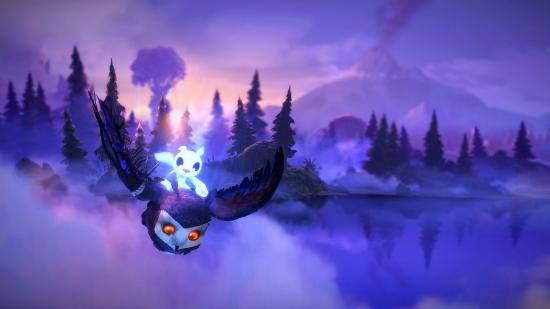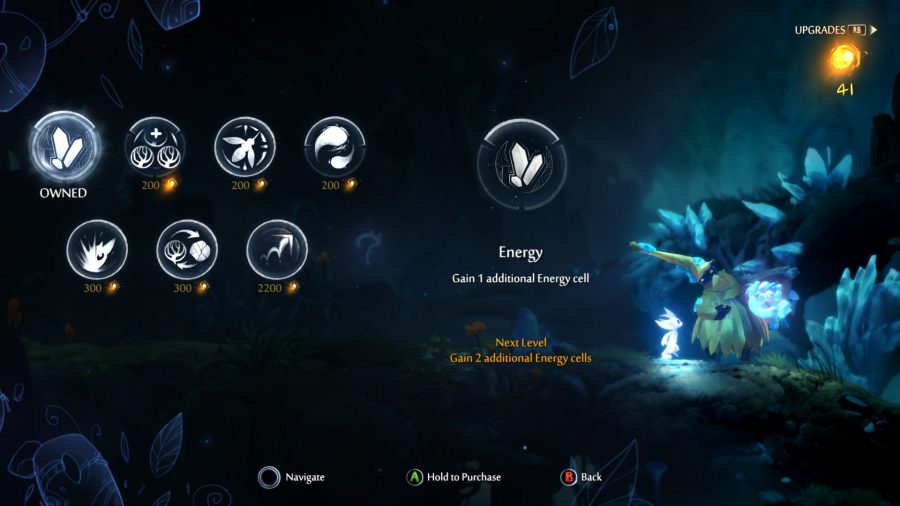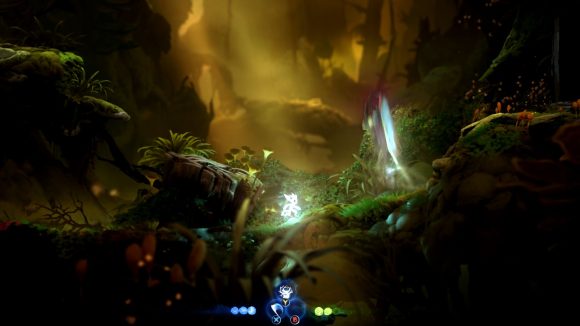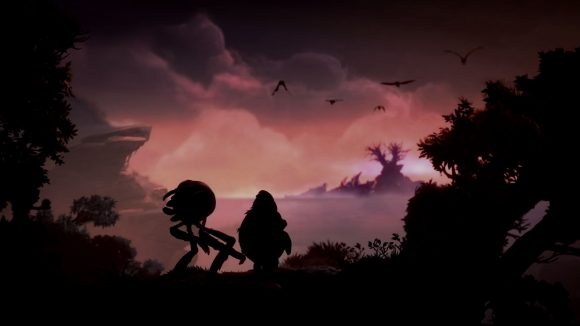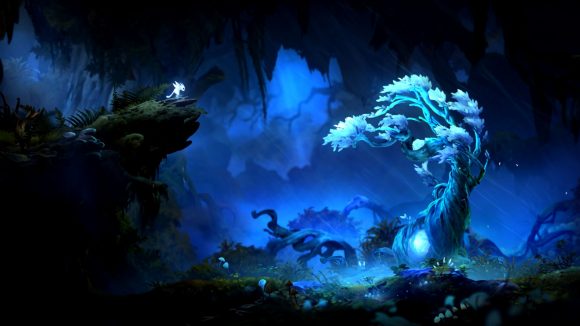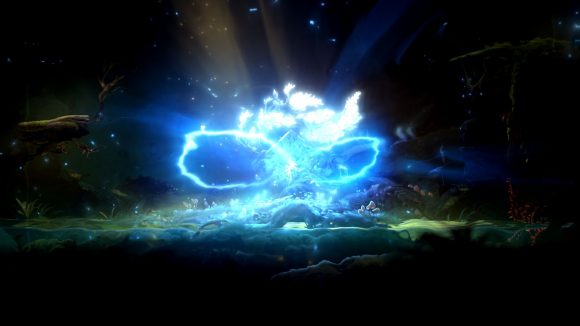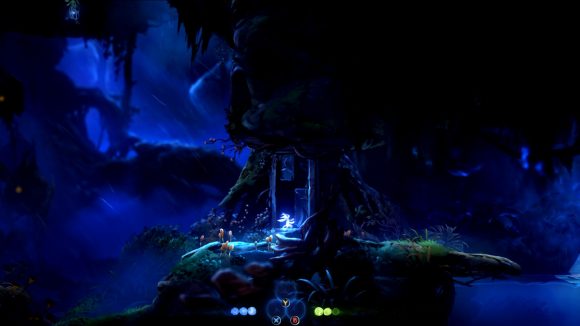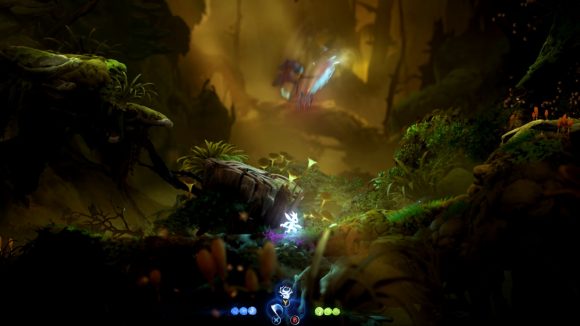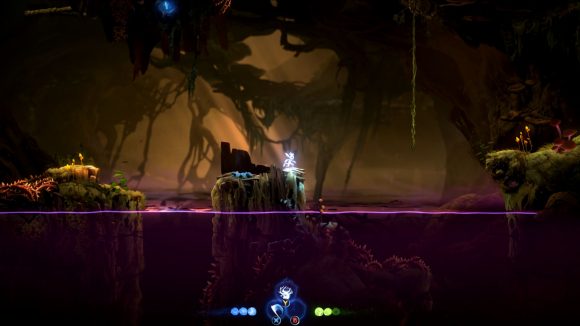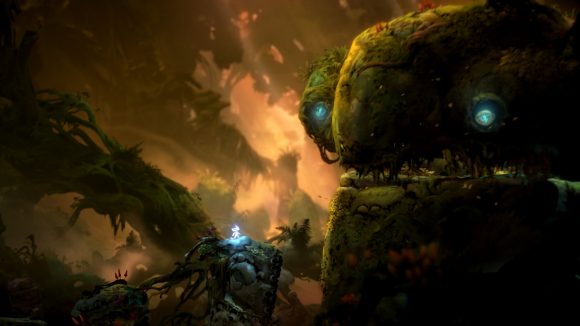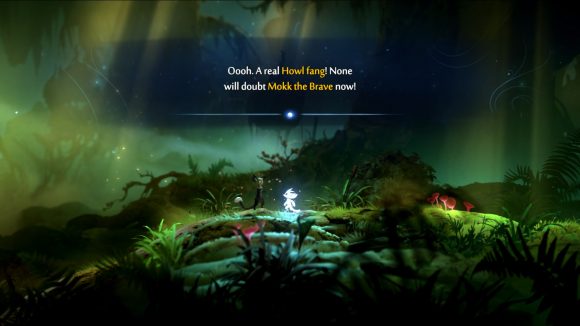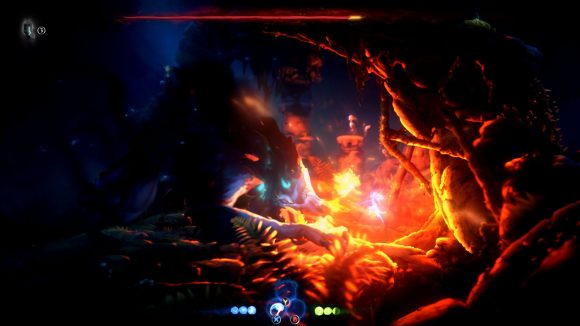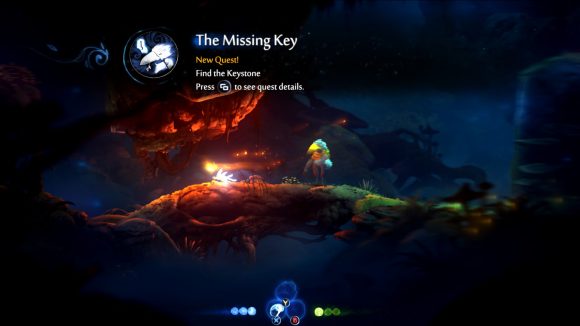Our Verdict
A haunting journey through a woodland with a real sense of place, but its breadth of mechanics silts up the pacing.
In Ori’s world, nature itself takes on a magical quality. This isn’t your average thicket: the Blind Forest glows supernaturally under the moonlight, and bristles as you walk through it as though you’re tickling its nerve endings with your scampering. Creatures within, neither this recognisable archetype nor that, chatter in philosophical platitudes. Instantly it feels like an inviting playground to inhabit.
That’s largely thanks to the sheer amount of production value Moon Studios pours into every inch of the world. Ghibli-grade string arrangements accompany your pitter patter through the ethereal landscapes, flora and fauna move in organic fashion, and moments of narrative emphasis burst in a flurry of light and wonderment. It’s a decent looking game, then.
It’s also a game with both breadth and depth of systems. It’s driven along by a soft-touch narrative, sure, but it rarely feels like the point of the endeavour. Instead, bolstering Ori’s platforming and combat abilities by harvesting spirit shards and spirit light, doubling back on previously impassable obstacles, and untangling the knots of the Blind Forest’s layout are the beating heart of the game.
That’ll catch a few who played the first game off guard. Well, a few who played the first game and then didn’t read or watch anything about this one. Until now. Look, the fact is there are quite challenging boss encounters nearly immediately, so at around the point when you were just drying your eyes after Ori and the Blind Forest’s forlorn intro, you’re now fighting desperately for your life while an enormous wolf snaps at you. See? Different.

It seems almost dissonant at first, hacking away with such brutality against slugs, wasps, canines, shelled maggot-like nightmares and the like while also exploring such a gentle and picturesque landscape. It feels a bit like selecting the background of a pre-Raphaelite painting to host a Street Fighter brawl. In a funny way, though, this gives Will of the Wisps its own voice. Nature’s as harsh as it is scenic, after all.
Exploring brings new combat abilities, first in the form of a simple Spirit Blade attack for close quarters, then in an expanding arsenal of more powerful ranged and melee options which also open new doors – figuratively and literally – in platforming puzzle areas. Bash, for example, deals damage to enemies along a trajectory you set, and also works as a double-jump. Or indeed a triple-jump, after you unlock the basic double-jump ability.
Gone is Ori and the Blind Forest’s comparatively tame skill wheel; in its place is a huge grid of equippable powers. It’s the deployment of these powers, in the right moment and the right order, that most commonly flummoxed me. A feeling of option paralysis seeps in as more and more traversal and combat abilities unlock, and whatever subtle signposting might exist in the environment is nullified if you don’t have a given ability currently equipped in one of Ori’s active slots. It might simply not enter your head to use the Light Bow if it’s not part of your current build.
This eagerness to cater for multiple playstyles which makes puzzling unduly tricky also makes combat particularly straightforward. Unlike the obstacles they patrol, enemies seem to have been designed to be tackled by any of the abilities on offer, so beating them really does come down to getting close and dealing damage, even in boss encounters (where admittedly a pinch of pattern recognition comes into play too).
This being a Metroidvania-style arrangement that’s heavy on doubling back and accessing new areas using recently unlocked powers, the vague way it goes about its signposting becomes tiresome. Are you stuck down in this bog, surrounded by thorny vines and no obvious means of an exit, because you haven’t thought to equip a particular ability? Or are you simply not on the critical path? At least, not yet?
My own personal experience – factoring in my own personal level of idiocy, which is quite high – meant that these moments cropped up a shade too often for Ori and the Will of the Wisps to be the kind of flowing, meditative experience it obviously wants to be. When things do click, though, the sense of satisfaction as you make your way into new territory or past a previously impassible blockade is wonderful.
And ultimately, it’s worth battling through to witness, too. There’s a soothing quality to Will and the Wisps that makes time run away from you, and an incredibly consistent amount of love in every tiny detail, from the way branches bounce and bow underfoot to Ori’s tumbling, leaping movements. It might have benefited more from louder signposting and narrower focus on abilities, but it remains a captivating playground to explore and unravel.
